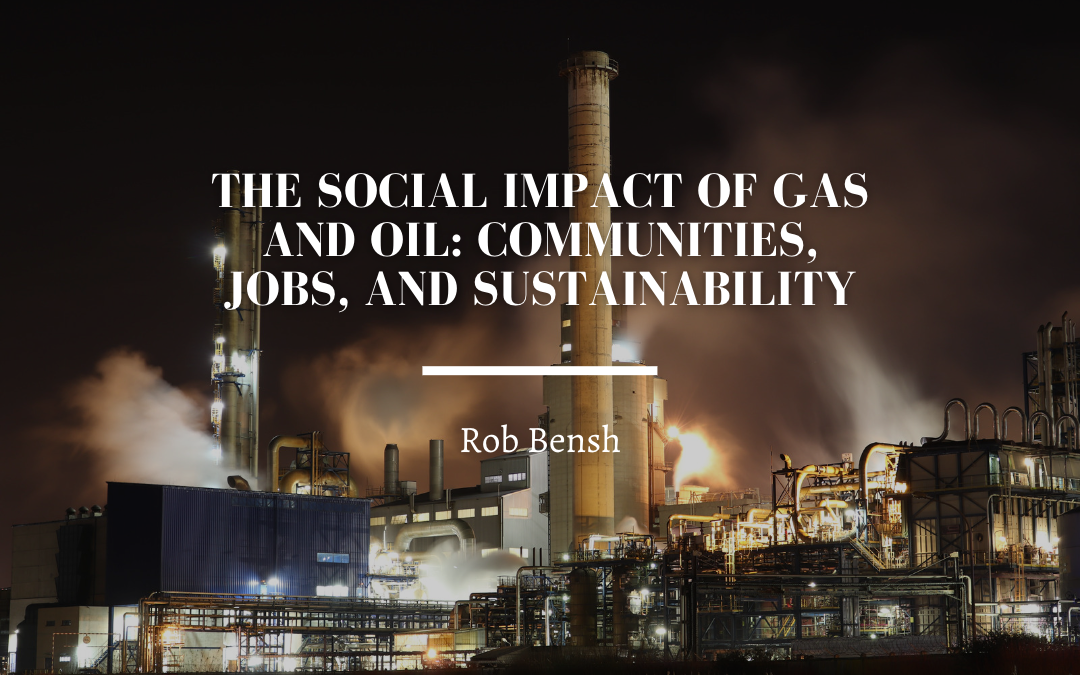The extraction and utilization of gas and oil have profound social impacts on communities worldwide. Beyond being crucial energy sources, these industries significantly shape local economies, job markets, and environmental sustainability. In this blog, we will explore the multifaceted social impact of gas and oil, focusing on communities, jobs, and sustainability.
Communities:
Gas and oil operations have both positive and negative effects on communities. On one hand, they can contribute to economic growth and development. Oil-rich regions often experience an influx of investment, leading to increased job opportunities, infrastructure development, and tax revenues. These benefits can enhance living standards, healthcare, and education systems in these areas.
On the other hand, gas and oil operations can also bring challenges to communities. Environmental risks, such as water and air pollution, can have detrimental effects on the health and well-being of local residents. Communities located near extraction sites may also face disruptions due to noise, increased traffic, and social changes resulting from an influx of transient workers.
Jobs:
The gas and oil industries are major employers globally, offering a range of job opportunities. These sectors provide direct employment in exploration, drilling, refining, distribution, and related services. Additionally, there are indirect employment opportunities in sectors like manufacturing, construction, transportation, and hospitality, which support the gas and oil industries.
However, it is important to note that these jobs can be volatile due to the cyclical nature of the energy markets. Economic downturns or shifts in energy policies can result in job losses and economic instability in regions heavily dependent on gas and oil. As societies transition towards cleaner and more sustainable energy sources, it becomes crucial to ensure a just transition for affected workers, providing them with retraining and alternative employment options.
Sustainability:
The environmental impact of gas and oil is a central concern for sustainability. Burning fossil fuels contributes to greenhouse gas emissions, leading to climate change and air pollution. Efforts to mitigate these impacts include increasing energy efficiency, investing in renewable energy sources, and implementing carbon capture and storage technologies. Transitioning towards a low-carbon economy is essential to address climate change and protect future generations.
Moreover, sustainability involves minimizing the ecological footprint of gas and oil operations. This includes responsible resource extraction practices, reducing water usage, and implementing measures to prevent and remediate environmental contamination. Collaboration between industry, governments, and communities is vital to ensure a sustainable future.
The social impact of gas and oil is complex and multi-dimensional. While these industries bring economic benefits and job opportunities to communities, they also present environmental challenges that must be addressed. Achieving sustainability requires a transition to cleaner energy sources, a just transition for affected workers, and a concerted effort to minimize the ecological footprint of gas and oil operations. By striking a balance between economic development, social well-being, and environmental responsibility, we can pave the way for a more sustainable future for all.
